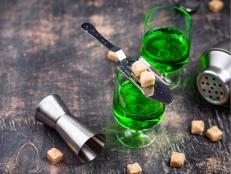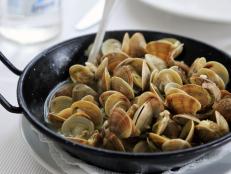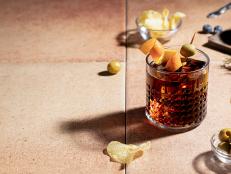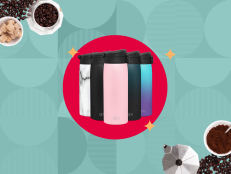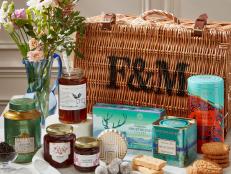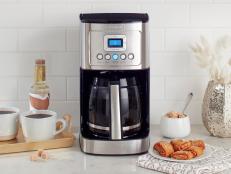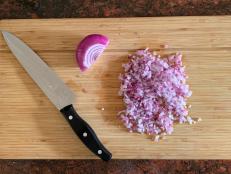How to Store Liquor, Spirits and More, According to a Spirits Expert
Spoiler — not everything can be stored on your bar cart!


Tanveer Badal
My longest-held job of my decade-plus bar career was that of Bar Director for a rapidly expanding restaurant group. At first, I was responsible for one bar program, but by the end of my tenure, I oversaw nearly a dozen. As you might imagine, there were a lot of very fun aspects to the job: training bartenders, developing cocktails, interacting with guests and discovering new products and techniques. One of the least fun, however, was keeping track of all the spirits that made up a majority of the cocktails we served, night after night.
Now that I do nearly all of my bartending at home, spirits storage is a more manageable, but no less important task. Spirits—as well as other ingredients that go into cocktails — can get pretty expensive, and you want to make sure they’re at their best for as long as possible.
The good news is that storing spirits is pretty straightforward. There are a couple exceptions, which I’ll get to in a minute, but for the most part storing sprits requires no special equipment or special rules depending on type. (i.e. what works for gin will work for whiskey.

© eleonora galli
What Exactly Is a Spirit?
But first, what is a spirit? The strict definition of spirit is drinkable alcohol that has been refined using the process of distillation. Distillation is a complex process that can be accomplished using a diverse array of equipment, but the key feature of distillation is that it takes a fermented, alcohol-containing mixture and uses heat (and sometimes pressure) to separate out individual components and re-assemble them according to the distiller’s plan, which usually includes increasing the alcohol by volume to 40% if not higher. By contrast, something like wine or beer — which are not spirits — are products of fermentation, and their ABV is between 3% to 15%. In short, distillation is necessary to increase ABV.
How To Store Spirits
Gin, vodka, tequila, whiskey, absinthe, amaro — these are all spirits. Their ABV falls in the range of 20%-60% and can be stored according to the following principles:
- For long-term storage, keep them in a cabinet away from heat and light. If the bottle is sealed with a cork, it’s best to store the bottle on its side so that the cork does not dry out and crack.
- If you’re going to display and serve spirits in, say a decanter, return the unused portion to the original bottle once you’re done.
- Drink within two years of opening.
Our Top Spirits Picks
Storing Liqueurs vs Spirits
Liqueurs are also spirits, but due to their flavoring components like fruit, dairy, nuts and spices plus their relatively low ABV (Chambord, for instance is 16.5%), you need to take a little extra care. Unopened, these bottles will keep for years in a cool, dark place, but once you crack the seal, you introduce oxygen into the bottle, and the clock is ticking. If you have space, the refrigerator (or a wine fridge) is a great place to store opened liqueur bottles. It’s rare to see an expiration date on a liqueur bottle, but my rule is to consume within six months, which is why I always recommend buying the smallest bottle possible, so as to avoid any waste. That said, pretty much the worst that can happen to a too-old liqueur is that it will turn brownish and not taste amazing.
Storing Spirits in the Fridge
Speaking of refrigeration, it is perfectly okay to store any and all spirits in the fridge or freezer. You might want to pre-chill a bottle of gin for your next Martini or get that whiskey extra cold for a frosty highball. Certain brown spirits might get cloudy when chilled — this is fine. What’s happening is that some of the oils (which give spirits their flavor) are coming out of suspension due to the reduced temperature. Once warmed back up, they’ll go back to being clear.
How To Store Fortified Wines (Like Vermouth and Sherry)
Now, what about things with alcohol that aren’t, strictly speaking, spirits? I’m talking about things like, vermouth, aperitif wine, and sherry, to name a few. These all fall under the category of “fortified wines” this means that they start with a base of wine to which distilled spirits are added to it to increase the ABV and allow flavorings to dissolve in the liquid more readily. It also helps to increase their shelf life but not by leaps and bounds. My general approach to storing fortified wines is to treat them as I would a fresh wine: Unopened they can be stored in a cool, dry place or even a wine fridge, and once opened you should keep them in the refrigerator and consume within two weeks. I always say that vermouth gets a bad rap because there’s a good chance that someone’s first experience with the stuff was out of a crusty bottle that had been sitting on a shelf for years, allowing the flavors to oxidize. Treat your fortified wines with respect, and they’ll reward you for it!
Drinking, serving, and learning about spirits and cocktails should be as fun and as stress-free as possible. Fortunately, the vast majority of spirits are quite durable, and with these few basic rules, you’ll be storing your sprits like a pro.
John deBary is the author of Drink What You Want: The Subjective Guide to Making Objectively Delicious Cocktails; CEO and Founder of Proteau, a zero-proof drinks company; and is also the Co-Founder and Board President of Restaurant Workers’ Community Foundation.
Related Content:

































